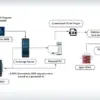
As we celebrate the Fourth of July — America’s enduring symbol of freedom and independence — now is a fitting time to reflect on another kind of independence: the critical, and increasingly endangered, independence of cybersecurity assessments and risk analyses.
In today’s rapidly evolving threat landscape, organizations are under constant pressure to defend digital borders, monitor operations, and comply with complex regulatory requirements. To meet these demands, many turn to outside firms for assessments, audits, and cyber risk consulting.
But a troubling trend is growing: the merging of advisory firms that provide independent assessments with companies that offer security monitoring, incident response, and operational information technology (IT) services. This convergence, while marketed as “integrated” or “end-to-end” solutions, risks eroding one of the most important values in cybersecurity governance — independence.
Just as the Founding Fathers recognized the need to separate powers and establish checks and balances to avoid conflicts of interest, modern organizations must ensure their cybersecurity risk assessments remain free from undue influence or self-interest. A loss of independence can compromise the credibility of findings, hinder risk transparency, and reduce trust among stakeholders — from regulators and boards to patients and customers.
Mergers and the Muzzling of Objectivity
The cybersecurity market is maturing, and with that maturity has come consolidation. Large managed security service providers (MSSPs) and technology vendors are acquiring advisory firms that once provided independent risk analysis. These consolidations are often framed as synergies — pairing risk identification with real-time threat management under a single umbrella. On the surface, this practice seems efficient.
But imagine asking your building inspector to also sell you the materials for repair and then manage the construction. Would you trust that the assessment was unbiased? Or would you suspect the report might overemphasize issues that lead to billable remediation work? That same skepticism should apply when cybersecurity assessors work for — or are owned by — the same companies that profit from the operational fixes they recommend.
The Role of Independence in Effective Cyber Risk Analysis
True independence in cyber assessment isn’t just a best practice — it’s a foundational element of sound risk management. Independence allows organizations to:
- Identify blind spots honestly: Without bias toward specific tools, platforms, or outcomes
- Prioritize risk based on actual exposure: Not on what can be most easily mitigated with the solutions a vendor already sells
- Demonstrate integrity to external stakeholders: Especially in regulated industries like healthcare, finance, and defense
- Strengthen governance: By ensuring that risk decisions are based on facts and not influenced by sales objectives
Much like the independence of the judiciary in a functioning democracy, cyber assessments must remain detached from the operational tactics of monitoring, detection, and incident response. The assessor must be free to say, “This is broken,” even when that assessment leads to uncomfortable truths — or lost contracts.
Independence Is No Afterthought
Regulators increasingly recognize the importance of independent assessments. Frameworks like HIPAA, Cybersecurity Maturity Model Certificate, and ISO 27001 emphasize third-party or objective review. Auditors and certifying bodies are expected to maintain arm’s-length relationships with implementers and service providers. This practice is not bureaucratic red tape — it’s a safeguard against conflicts of interest that could compromise both data security and public trust.
We’ve seen this before in financial auditing. After the collapse of Enron and the downfall of Arthur Andersen, regulations like the Sarbanes-Oxley Act were implemented to ensure the independence of financial auditors. Why? Because auditors who also provided consulting and implementation services were often incentivized to overlook risky behavior.
Cybersecurity is now in that same critical phase of professional evolution.
What Organizations Should Demand this Independence Day
On this holiday that commemorates America’s break from dependence on external powers, organizations should declare their own cyber-independence by adopting three key practices:
1. Separate the Assessors from the Operators
Avoid using the same vendor for both security assessments and implementation or monitoring services. If you must, ensure they operate under strict separation-of-duties policies, with clearly defined firewalls between teams.
2. Demand Transparency about Ownership and Incentives
Ask your assessment provider: Who owns you? What other services do you sell? Are your recommendations influenced by your parent company’s product lines or remediation offerings?
3. Ensure Governance Includes External Oversight
Include independent voices in your cyber governance process. Whether it’s a board-level technology committee, an external audit firm, or an advisory council, independent perspectives challenge groupthink and drive accountability.
Independence Is Not Inefficiency — It’s Integrity
Some vendors will argue that combining assessments with remediation services leads to faster response times, improved continuity, or cost savings. While there is some truth to that claim, speed should never come at the cost of integrity. Independence doesn’t mean slower — it means smarter. It means the people identifying your risks aren’t also profiting from fixing them. It means you can trust what you’re told.
Liberty and Cyber Vigilance
The American Revolution was fueled by the idea that power must be kept in check and that independence is worth fighting for — even at great cost. In our digital age, that same principle applies to how we manage risk and safeguard information.
Let this Independence Day serve not only as a celebration of freedom from political tyranny but also as a call to reaffirm the freedom of our assessments from commercial influence. As you watch fireworks light up the sky, remember: The brightest beacon in cybersecurity is still the truth. And truth requires independence.




